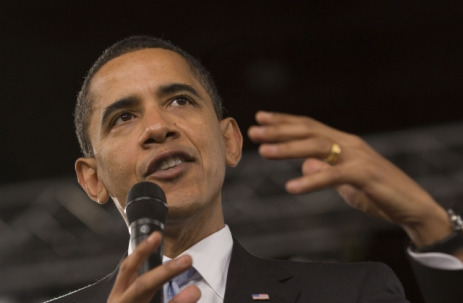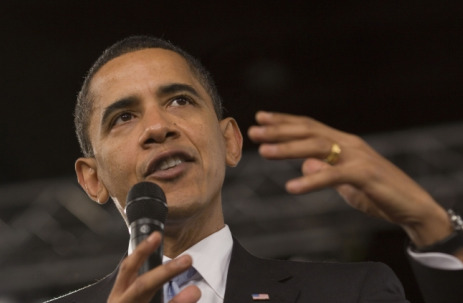 Photo: The White HouseTonight, President Obama addresses the nation to talk about how his administration will hold BP accountable for the damages incurred by what has become the worst oil spill in U.S. history, and how he plans to reregulate the oil industry. The American public will be looking for bold action.
Photo: The White HouseTonight, President Obama addresses the nation to talk about how his administration will hold BP accountable for the damages incurred by what has become the worst oil spill in U.S. history, and how he plans to reregulate the oil industry. The American public will be looking for bold action.
Obama has a golden opportunity to show the growing ranks of disappointed progressives and moderates that his administration is about changing politics as usual — if he and his advisors have the political courage to seize the moment. Obama must harness the public outrage at BP and momentum toward economic revitalization to make concrete steps toward U.S. leadership in the global transition away from dirty fuel to clean, renewable energy.
In less than two weeks, leaders from the 20 wealthiest countries (the G20) will meet in Toronto to discuss global economic recovery and closely related matters such as climate change. Outstanding on their agenda — as proposed by Obama last September — is the elimination of fossil fuel subsidies.
Worldwide, developed countries spend up to $100 billion a year making oil, coal, and gas cheaper for energy companies through tax breaks, subsidized loans, price controls, and other giveaways. Estimates of federal handouts to the U.S. oil industry range as high as $39 billion a year.
The idea behind fossil fuel subsidies is to keep the cost of producing energy low so that company profits are high enough to incentivize continued production. That might have made sense when oil, coal, and gas were the only feasible sources of power to run the American economy. You could have even argued for oil company handouts or when the price of a barrel of oil was only $18 — as it was in 1995 when Congress established a royalty waiver program for deepwater drilling. But today the price of oil is more than $70 a barrel. BP just posted a $6.1 billion profit in the first quarter. And scientists, governments, and schoolchildren around the world understand that burning fossil fuels is putting the future at risk from climate change. Enough is enough.
Obama should return to his commitment tonight, outlining not only how to regulate the out of control oil industry, but how to shift the tens of billions of taxpayer dollars going to dirty energy each year into safer, cleaner, and more secure energy sources in the U.S. and abroad.
But he’s got to get the cuts right. The OECD — a group of 31 industrialized countries — has its eye on consumer subsidies in the developing world. Eliminating tax exemptions that make energy accessible in impoverished countries and communities should be off the table until government handouts to oil, coal, and gas companies raking in billions have ended.
And we should make sure that these incentives go to the right place — to deployment of proven technologies like wind and solar, research and development of innovative ideas, and to small and medium sized energy companies that can help decentralize and localize the energy sector, making energy companies accountable to the communities in which they operate.
In his speech to an anxious country, Obama should lay out how federal support for a vibrant clean energy economy will usher in a new era of environmental and economic security.
Getting the right laws on the books, and then enforcing them, is clearly critical to avoiding another environmental and economic disaster like BP’s Deepwater Horizon explosion. No question. But until we collectively kick our oil addiction — and dependence on other dirty energy like coal, gas, and nuclear power — we can expect to continue reading headlines like “Deadly Coal Mining Disaster in West Virginia,” “Radioactive Waste from Nation’s Oldest Nuclear Power Plant Reaches Aquifer in New Jersey,” and “Massive Oil Slick Hits Battered Gulf Coast.” Obama can help us start tonight.



